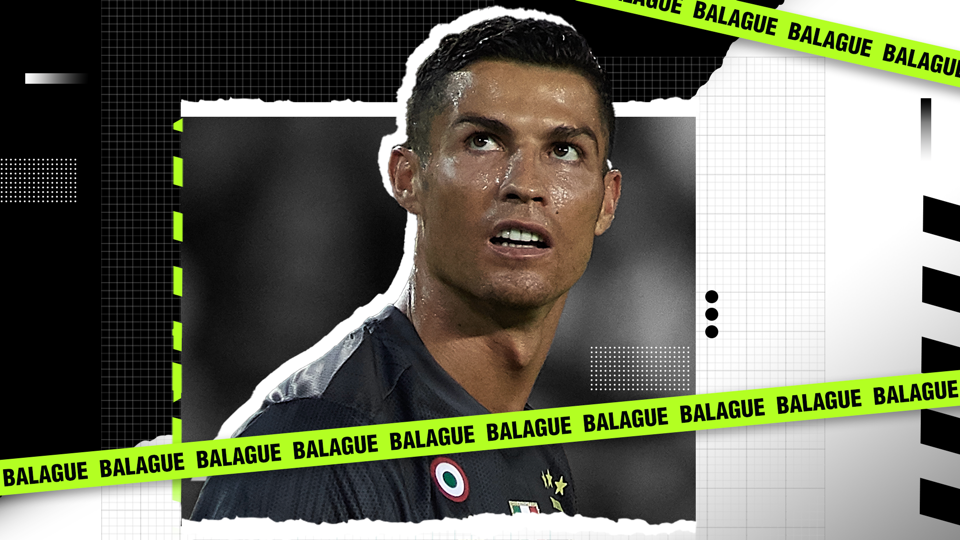Once Ronaldo announced that he would not be attending the FIFA Best awards ceremony, it was clear that this was one trophy that would not be gracing the Portuguese superstar’s mantelpiece this year.
We have some very recent ‘previous’ here, of course, as he also skipped the UEFA Player of the Year award festivities. I was in Monaco at the time and I could see his assistants running around in a tizzy as it became clear that Ronaldo had decided at the very last minute not to go.
On both occasions, Ronaldo had clearly been irked by the realisation that he would not be receiving the top gongs. His agent and friend Jorge Mendes came out swinging on his behalf.
“Football is played on the field and that’s where Cristiano won,” he told Portuguese outlet Record.
“He scored 15 goals, carried Real Madrid on his back and conquered the Champions League again.”
Mendes’ headline-generating hyperbole was unsurprising; after all, there’s a reason why he’s the best agent in the business. But the next line was interesting.
“It’s ridiculous, shameful,” he fumed. “The winner is not in doubt, as Ronaldo is the best in his position.”
The implication here appeared to be that Ronaldo’s decision to swap Real Madrid for Juventus during the summer may have been behind the “shameful” snub.
It seems to me that the decision to swap Spain for Italy, without any dramatic increase in wages and only marginal tax benefits, was driven more by status than football.
By which I mean, amongst other things, why would Ronaldo stay at Real Madrid, where he would only ever be regarded as a mere mortal, when he could go to Juventus and be treated as a god?
The thing with Ronaldo is that it has never really been about the money, except that in the commercial jungle that is top-level football, the size of your salary is the only true barometer for understanding how highly you are valued, loved, respected and adored.
Ronaldo left Madrid fundamentally because he felt the powers that be had fallen out of love with him – and that the fans started seeing him only as a footballer.
I have spoken recently to psychologists to try to understand the complex rationale that determines CR7’s modus operandi. The conversations were fascinating.
They told me that throughout any player’s career there is a complicated blend of technical, tactical, physical and emotional factors all interacting with each other, any one of which at any given time can take a prominent role.
Towards the end of a career, as the physical element diminishes, anxiety levels rise and the emotional levels step up. The motivational boundaries change. It no longer becomes just about the sport, but primarily about how one’s performance and presence within that particular sport is perceived by others.
This becomes particularly prevalent when an individual joins a new club and the bar is set particularly high. For Ronaldo at Juventus, it has been placed in the stratosphere. Ultimately, the game becomes little more than a means to an end. Results are the ultimate litmus test but only when taken in conjunction with personal performance.
Football, and the game’s lofty expectations of its elite players, are to blame. It is difficult to be a god on a one-off basis, but Ronaldo now finds himself having to perform miracles on a weekly basis.
The vast majority of the ‘man-boys’ that inhabit the profession suffer stunted growth because football does not encourage maturity of thought and prefers to wrap its players in a world of prolonged adolescence because it makes the players easier to control by the coaches and clubs.
The flip side of that, unfortunately, is that as the emotional stakes rise, as happened after Ronaldo’s controversial dismissal against Valencia, it results in histrionics, tantrums and the employment of friends, family and sympathetic journalists to fight your cause. They work together to convey the impression that the player is being victimised.
Anything else would be perceived as weakness, an error, and Gods don’t make errors, do they?
Think of Paul Gascoigne at Italia ’90 and you have the same scenario.
Riding a publicity-fuelled emotional rollercoaster that eventually led to him winning BBC Sports Personality of the Year, the former England midfielder broke down on the field after realising that a booking in the World Cup semi-final against West Germany would rule him out of the final.
The Three Lions failed to progress anyway but Gascoigne’s tears became the defining image of the tournament for English football fans. Yet nobody ever pointed out that he only had himself to blame for making such a reckless challenge.
The public simply felt sorry for him. And there was plenty of sympathy for Ronaldo, too, after his red at Mestalla but the tears still felt like a smokescreen, an attempt to distract people from the possibility that he had erred in putting his hand on Jeison Murillo’s head.
Whether that act really deserved a red is debatable but Ronaldo’s reaction was far more interesting anyway.
I admire Cristiano but I will not stop describing or trying to understand his behaviour.
He has many enemies for all manner of reasons and precious few friends; and by friends I don’t mean people that will fawn over him, asking him about his games and his goals, but simply enquire as to how he is; how he’s feeling.
The brilliant and oft-quoted American basketball player and coach John Wooden summed it up perfectly when he said: “Talent is God-given. Be humble. Fame is man-given. Be grateful. Conceit is self-given. Be careful.
“Be more concerned with your character than with your reputation. Your character is what you really are, while your reputation is merely what others think you are.”
Cristiano is playing so many different games, fighting so many different battles. Sometimes it feels like too many. Even for him. He’s only a human, after all.





 HOTLINE:
HOTLINE: 















